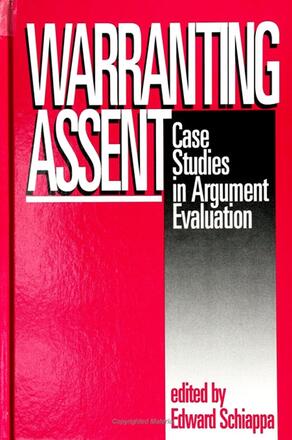
Warranting Assent
Case Studies in Argument Evaluation
Alternative formats available from:
This book is a book about how individuals decide that arguments (or excuses) are valid or invalid, sound or unsound, strong or weak, ethical or unethical, with many examples and applications.
Description
This book brings together essays that demonstrate the art of argument evaluation. The essays apply a variety of theoretical approaches to specific, historically-situated arguments in order to render a specific normative judgment. By bringing to bear knowledge of argumentation theory along with expertise pertaining to the specific arguments under investigation, this book illustrates the utility of argument evaluation as a discrete mode of scholarly engagement.
Edward Schiappa is Associate Professor and Director of Graduate Studies in Communication at Purdue University. He is the author of Protagoras and Logos: A Study in Greek Philosophy and Rhetoric and the editor of Landmark Essays on Classical Greek Rhetoric.
Reviews
"Once I started reading this book I could not put it down! It addresses how we justify the decisions we make in U. S. culture. Furthermore, this book represents an important contribution to the study of argumentation. People who study argumentation need this book. It pulls together a range of perspectives on argument evaluation and raises questions about traditional approaches to argument evaluation. Scholars of argumentation have been reticent to recognize in Palczewski's terms 'that the world is defined objectively, subjectively, and intersubjectively. ' This collection encourages scholars to examine their own biases when they evaluate the ethicality of arguments. Questions that have been raised by feminist scholars in philosophy, English, psychology, sociology, and communication studies are addressed. " — Patricia A. Sullivan, State University of New York, College at New Paltz